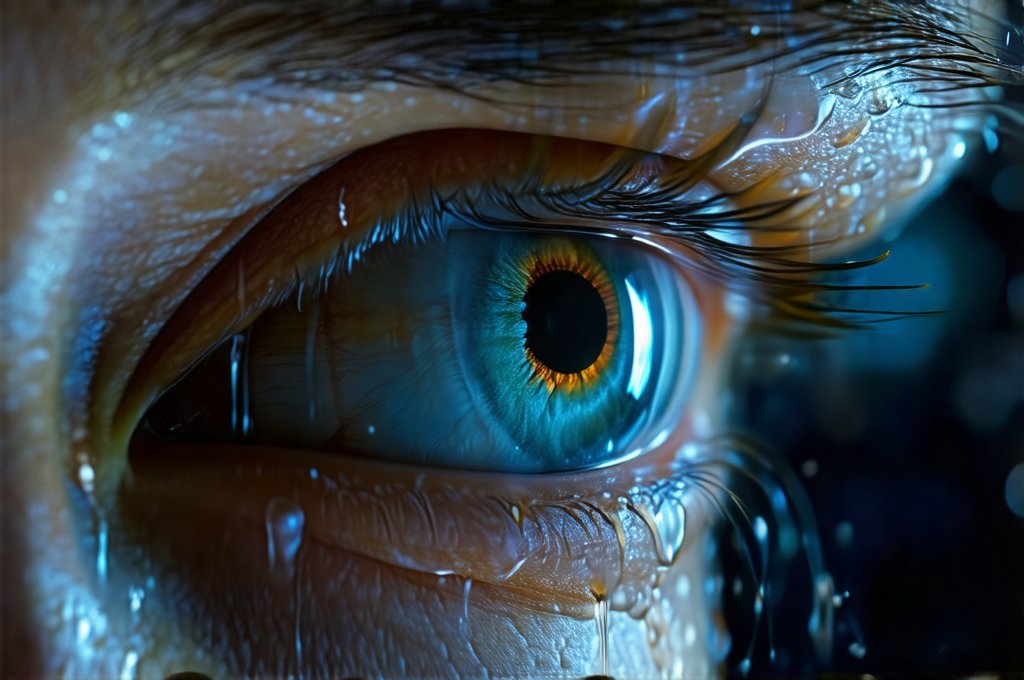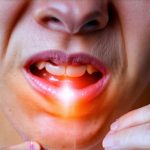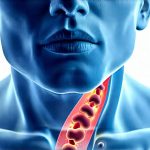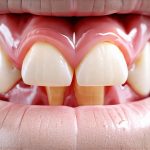Gastroesophageal reflux disease (GERD), often simply called acid reflux, is a surprisingly common condition affecting millions worldwide. While many associate it with heartburn and indigestion, its reach extends far beyond these typical symptoms. People frequently experience GERD as a digestive issue, focusing on discomfort in the chest or throat. However, the systemic nature of reflux means it can manifest in unexpected ways, even impacting seemingly unrelated parts of the body. One particularly puzzling symptom that has recently garnered more attention is unexplained eye watering – specifically occurring at night while sleeping. This often leaves individuals confused and seeking answers, wondering if a simple digestive problem could be linked to their ocular symptoms.
The connection between GERD and nocturnal eye watering isn’t immediately obvious, but it’s rooted in the complex interplay of our body’s systems. When stomach acid rises into the esophagus, it doesn’t always stop there. In some individuals, especially those with more severe or frequent reflux episodes, this acidic content can travel further up – reaching the back of the throat and even impacting the delicate structures around the eyes during sleep. This isn’t simply about direct contact; the body’s response to irritation plays a critical role. The vagus nerve, a major cranial nerve responsible for numerous functions including digestion and tear production, is often stimulated by this reflux-related inflammation, triggering excessive tearing as a protective mechanism. Understanding this pathway is key to recognizing the potential link and seeking appropriate evaluation.
The Vagus Nerve and Reflux-Induced Lacrimation
The vagus nerve acts as a crucial communication highway between the gut and the brain, influencing everything from heart rate and breathing to digestion and immune responses. It’s incredibly sensitive and reacts strongly to changes within the digestive system. In the context of GERD, frequent acid exposure and inflammation in the esophagus can chronically stimulate the vagus nerve. This constant stimulation leads to a phenomenon called vagal-mediated lacrimation – tear production initiated not by eye irritation directly, but by signals originating from the digestive tract. It’s essentially a misinterpretation by the nervous system; the brain perceives discomfort or irritation in the esophagus as needing ocular protection through increased tearing.
This is why nocturnal eye watering related to GERD often differs from typical crying. The tears aren’t usually associated with emotional distress, and there isn’t typically any redness, burning, or foreign body sensation in the eyes themselves. It’s a silent, sometimes frustrating symptom that can disrupt sleep and raise concerns about underlying eye conditions. Identifying this link requires careful consideration of other GERD symptoms, even seemingly unrelated ones like chronic cough, hoarseness, or difficulty swallowing. The vagus nerve is also connected to other bodily functions, explaining why some people with reflux experience issues such as asthma exacerbation at night. The Connection Between GERD and Hiccups can be another surprising manifestation of this complex interaction.
The position we sleep in can significantly exacerbate the issue. Lying flat allows stomach acid to flow more easily into the esophagus and potentially reach the throat, increasing vagal stimulation. This explains why nocturnal eye watering is often worse when sleeping on one’s back or left side – gravity isn’t working to keep acid down. Furthermore, the body’s natural clearing mechanisms (saliva production, peristalsis) are reduced during sleep, allowing reflux to linger and continue irritating the vagus nerve for longer periods.
Identifying GERD as a Cause
Pinpointing GERD as the cause of unexplained eye watering requires a thorough evaluation process. It’s important to rule out other potential causes first, such as allergies, dry eye syndrome, blocked tear ducts, or corneal abrasions. An ophthalmologist can perform a comprehensive eye exam to assess these possibilities and determine if the tearing is indeed unrelated to GERD. However, if eye exams are normal and the watering occurs primarily at night, suspicion of a reflux connection should increase. GERD and Swallowing Difficulties can also point towards underlying issues that need investigation.
- Symptom Diary: Keeping a detailed diary tracking both digestive symptoms (heartburn, bloating, regurgitation) and eye watering episodes can reveal patterns. Note the time of day, position you were sleeping in, and any related factors like meals or stress levels.
- Reflux Questionnaire: Your doctor may use a validated reflux questionnaire to assess the severity and frequency of your GERD symptoms.
- Trial Elimination Diet: Temporarily eliminating common trigger foods (caffeine, alcohol, chocolate, spicy foods, fatty foods) can help determine if diet plays a role in both digestive and ocular symptoms. Dinner Meals for GERD and IBS provide good starting points for dietary adjustments.
If suspicion remains high, further diagnostic testing may be recommended. A pH monitoring study measures the amount of acid refluxing into the esophagus over a 24-hour period. An endoscopy allows visualization of the esophageal lining to check for damage caused by chronic acid exposure. These tests help confirm GERD as a diagnosis and assess its severity, guiding treatment decisions. It’s crucial to remember that self-diagnosing can be misleading; seeking professional medical guidance is essential. Understanding whether you have GERD with esophagitis or GERD without esophagitis can also influence your treatment plan.
Treatment Approaches – Addressing Both Ends
Addressing reflux-induced eye watering requires a multifaceted approach focusing on both managing the underlying GERD and minimizing vagal stimulation. Lifestyle modifications are often the first line of defense, and they can significantly reduce symptoms for many individuals. These include:
- Elevating the Head of Bed: Raising the head of your bed by 6-8 inches using blocks or a wedge pillow helps prevent acid from flowing upward during sleep.
- Dietary Changes: Avoiding trigger foods and eating smaller, more frequent meals can reduce reflux episodes.
- Weight Management: Losing weight if overweight or obese can decrease abdominal pressure and lessen the likelihood of reflux.
- Avoiding Late-Night Meals: Allow at least 2-3 hours between your last meal and bedtime.
If lifestyle changes aren’t sufficient, medications may be necessary to control acid production. Proton pump inhibitors (PPIs) are often prescribed to reduce stomach acid secretion, while H2 receptor antagonists offer a milder form of acid suppression. In some cases, prokinetic agents can help speed up digestion and prevent reflux. It’s crucial to discuss the potential side effects and risks of any medication with your doctor before starting treatment.
Beyond Medication – Holistic Considerations
While medications can effectively manage GERD symptoms, focusing solely on pharmacological intervention isn’t always ideal. A holistic approach that addresses underlying factors contributing to reflux is often more sustainable in the long run. Stress management techniques such as yoga, meditation, or deep breathing exercises can help reduce vagal nerve sensitivity and overall inflammation. Chronic stress can worsen reflux symptoms by increasing cortisol levels and disrupting digestive function.
Additionally, identifying and addressing food sensitivities beyond common trigger foods may be beneficial. Some individuals find relief by eliminating gluten, dairy, or other potential allergens from their diet. Regular exercise promotes healthy digestion and reduces abdominal pressure. Finally, maintaining a consistent sleep schedule and creating a relaxing bedtime routine can further minimize vagal stimulation and improve overall well-being. GERD and Bad Breath is another symptom that highlights the systemic effects of this condition. It’s important to view GERD management as an ongoing process requiring attention to lifestyle factors, dietary habits, and stress levels – all of which contribute to the delicate balance within our bodies. The Connection Between GERD and Throat Clearing further illustrates the wide range of symptoms this condition can present.


















